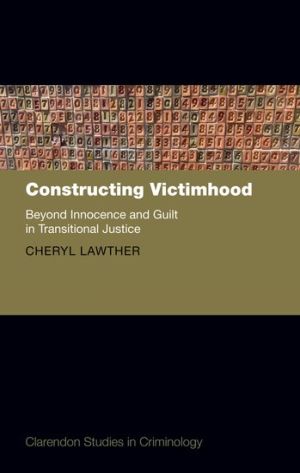We are now closed for the Christmas and New Year period, returning on Monday 5th January 2026. Orders placed during this time will be processed upon our return on 5th January.

Constructing Victimhood seeks to go 'beyond innocence and guilt' to expand the criminological, victimological, and transitional justice image of who we 'see' as victims, what we 'hear' as experiences of victimisation, and who makes these determinations.
The book argues that the construction, reproduction, and politicisation of victimhood is structured not only by notions of innocence and guilt and the existence of complex victims, but by larger questions concerning the existence of complex hierarchies of victimhood that supersede simplistic notions of 'good' and 'bad' victims. Lawther also considers the exercise of voice, the role of silence and the silencing of certain variants of victimhood (in gender-based crimes for example), the politicisation of victims' groups and the impact of unresolved legacies of violent conflict. The author argues that in the failure to cast the transitional justice gaze more widely it is not only the 'voices in the cracks' that will be overlooked, but entire experiences of victimhood and victimisation.
If transitional justice is to live up to its claims of being 'victim centred', widening its conceptual and practical boundaries to recognise the multiple and overlapping variables that construct and reproduce victimhood is essential. Pursuing this line of enquiry, Constructing Victimhood aims to change our understanding of victimhood in post-conflict and transitional contexts.